Heute führte uns unser Weg nach Potsdam, wo wir das Schloss und den Park Sanssouci besichtigten. Die beeindruckende Anlage gab tiefe Einblicke in das Zeitalter Preußens und die Epoche der Monarchie. Zugleich wurde uns bewusst, welch enorme Mittel damals für Pracht, Prunk und persönliche Machtinszenierung einzelner Herrscher aufgewendet wurden – in einem krassen Gegensatz zur Lebensrealität großer Teile der Bevölkerung, die kaum Zugang zu Bildung oder medizinischer Versorgung hatten.
Diese Widersprüche waren Thema unserer anschließenden Diskussion über das preußische Erbe und die zwiegespaltene Rolle der Monarchie in der deutschen Geschichte.
Am Nachmittag besuchten wir die Universität Potsdam, erkundeten den Campus, aßen in der Mensa und kamen mit Studierenden ins Gespräch. Dabei ging es um ihre Studienbedingungen, ihre Sicht auf gesellschaftliche Entwicklungen und die Herausforderungen, denen sie aktuell begegnen.
Der Abend stand im Zeichen der Erinnerung: Gemeinsam sahen wir den Film Schindlers Liste, den wir bereits vor zwei Tagen inhaltlich vorbereitet hatten. Der Film hinterließ einen tiefen Eindruck – bewegend, verstörend, erschütternd. Viele von uns waren danach still, nachdenklich und betroffen.
„Nie wieder Auschwitz“ – das darf keine bloße historische Erinnerung bleiben. Es ist ein gesellschaftlicher Auftrag.
-Pauline, Isak, Gummi
Today, our journey took us to Potsdam, where we visited Sanssouci Palace and Park. The impressive site offered deep insights into the era of Prussia and the age of monarchy. At the same time, it became clear to us just how vast the resources were that rulers once spent on splendor, luxury, and personal displays of power—starkly contrasting with the living conditions of much of the population, who had little access to education or medical care.
These contradictions were the focus of our subsequent discussion about Prussia’s legacy and the monarchy’s conflicted role in German history.
In the afternoon, we visited the University of Potsdam, explored the campus, had lunch in the cafeteria, and spoke with students. We discussed their study conditions, their perspectives on social developments, and the challenges they are currently facing.
The evening was dedicated to remembrance: together we watched Schindler’s List, a film we had already prepared for two days prior. It left a deep impression—moving, disturbing, and deeply unsettling. Many of us remained quiet afterward, thoughtful and affected.
“Never again Auschwitz” must not remain a mere historical reminder. It is a social responsibility.
-Pauline, Isak, Gummi
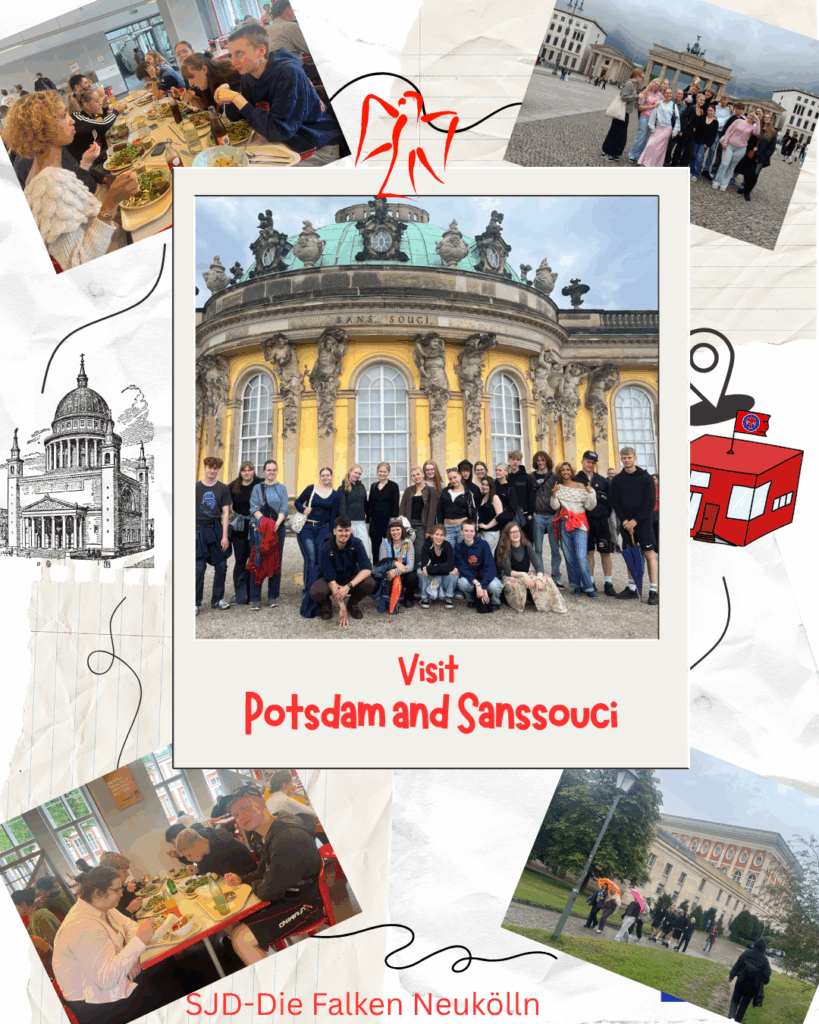
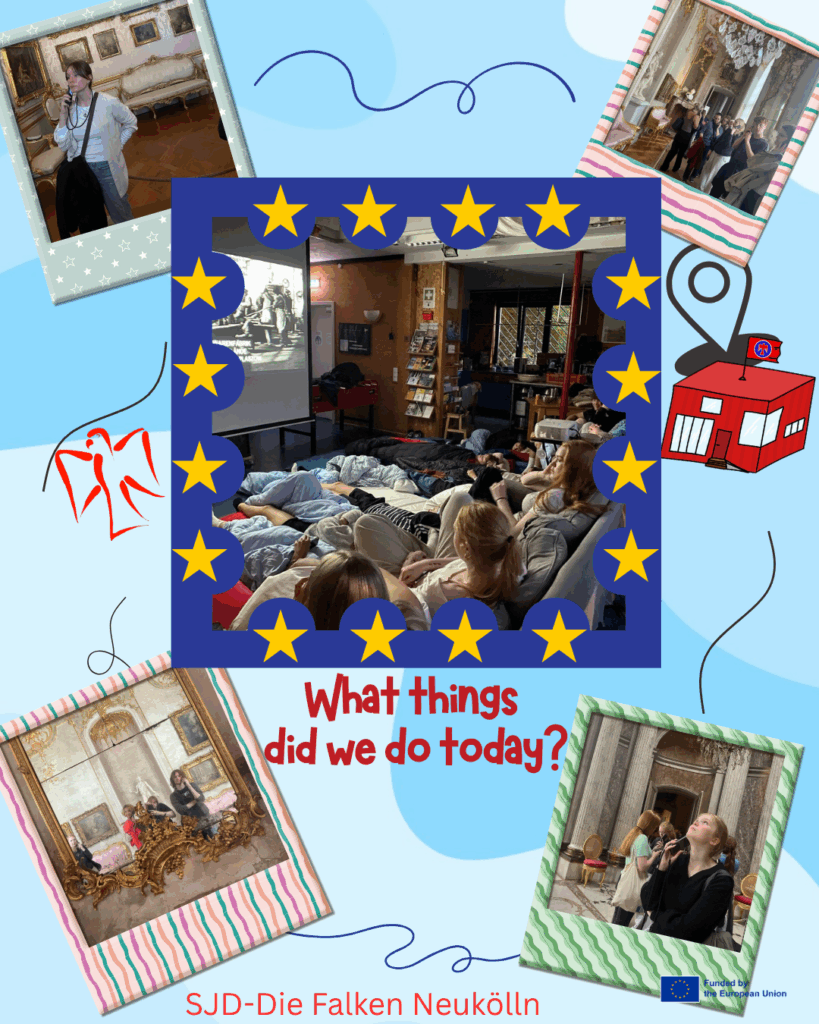

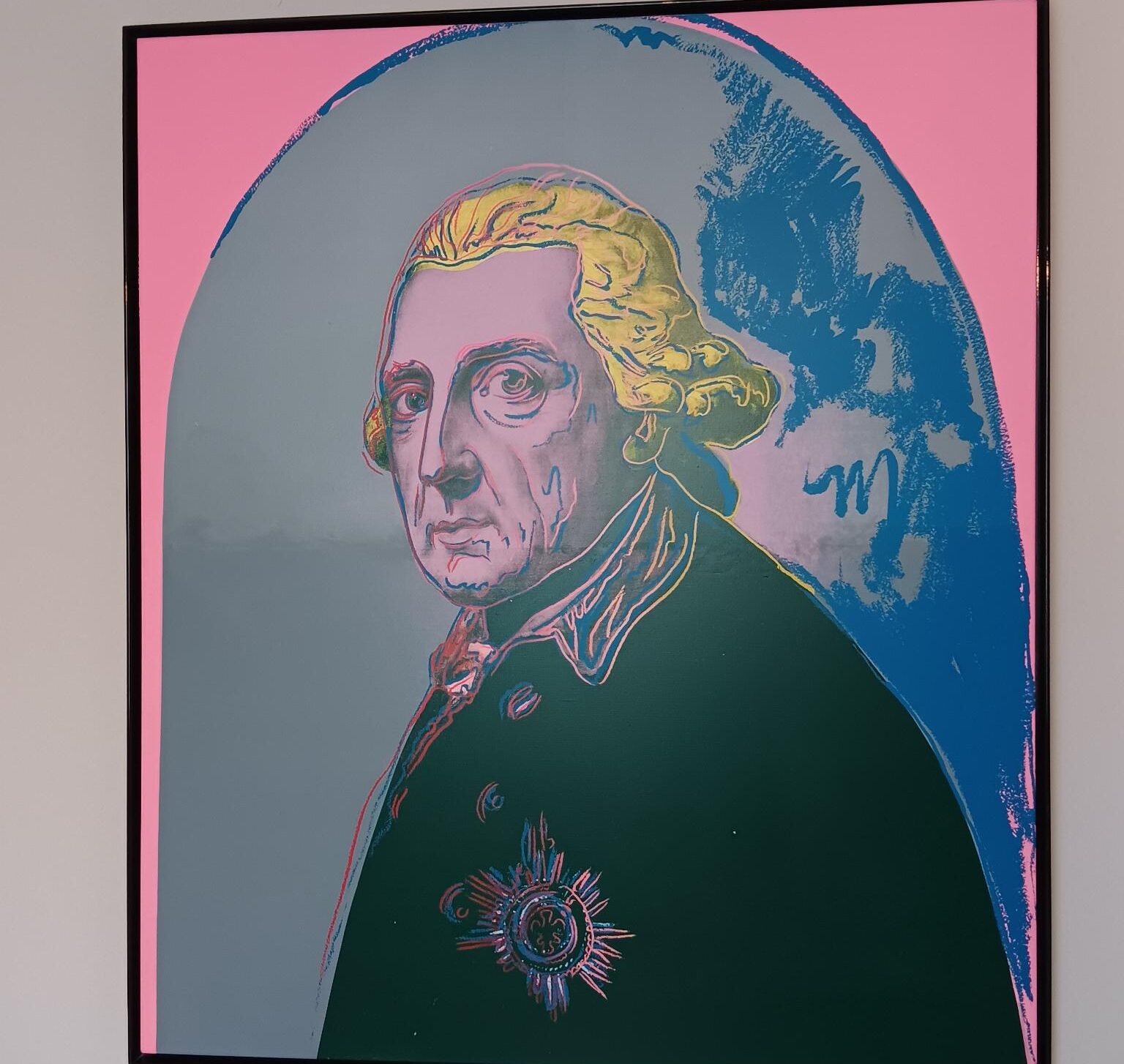

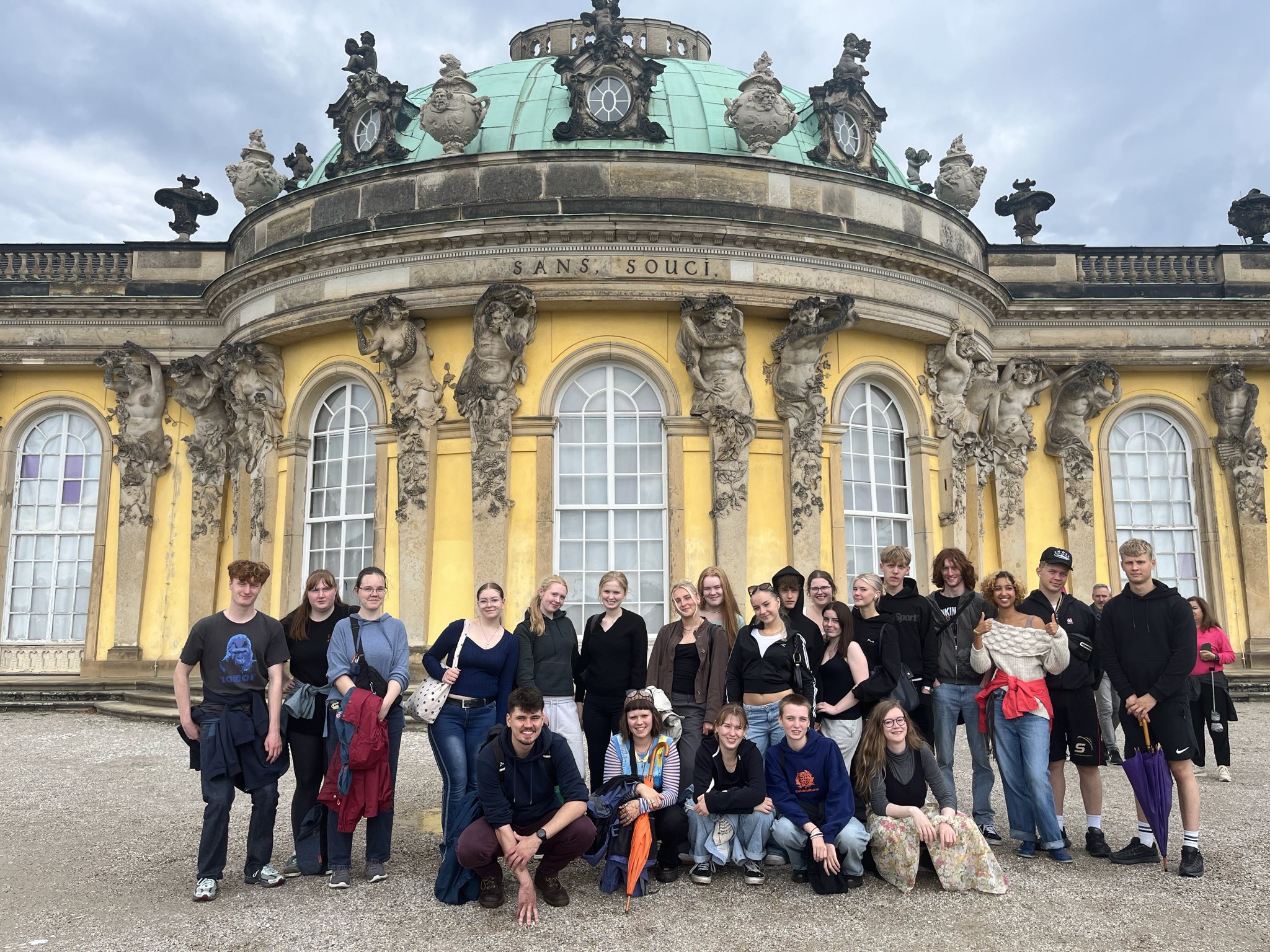
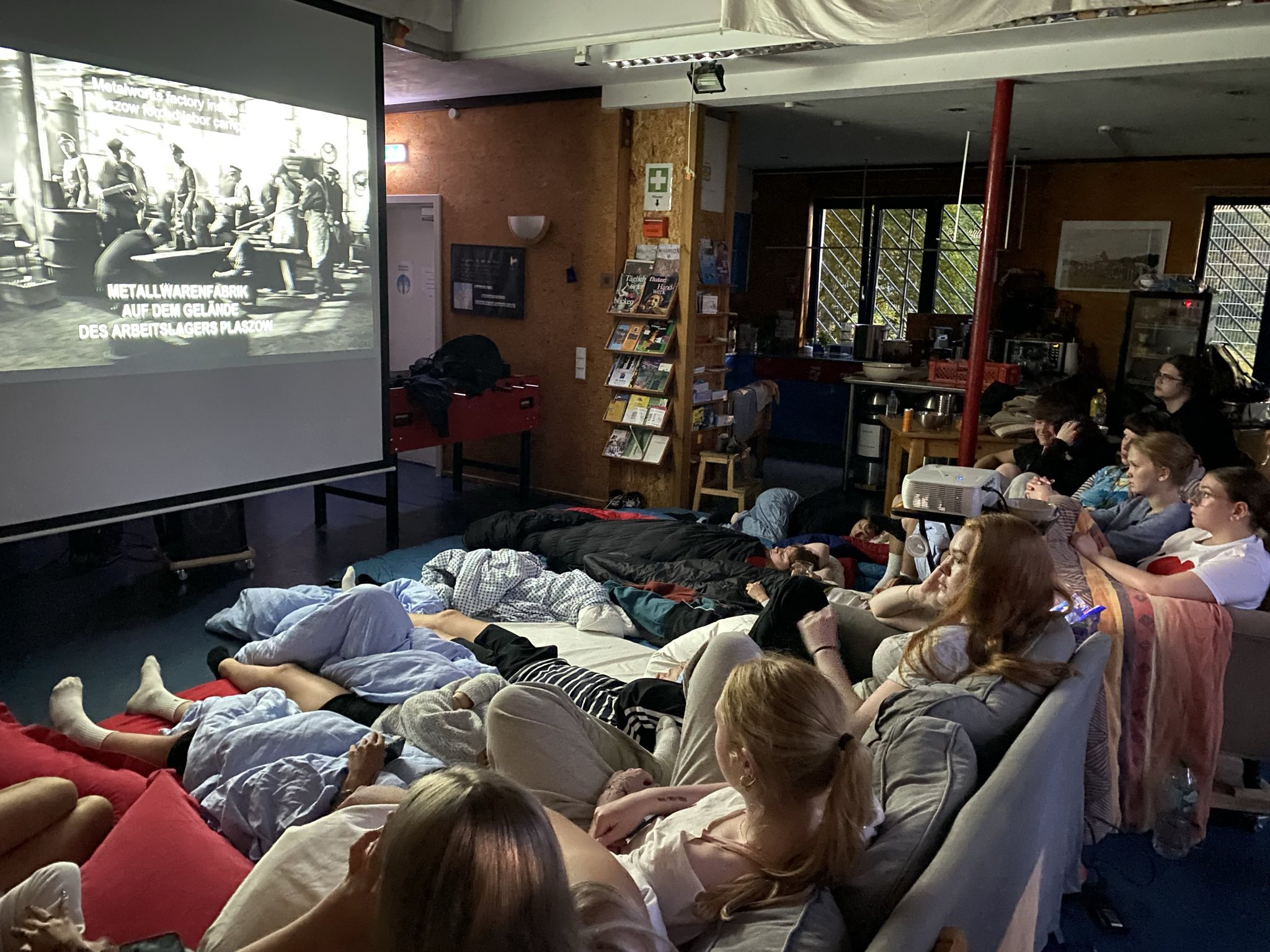
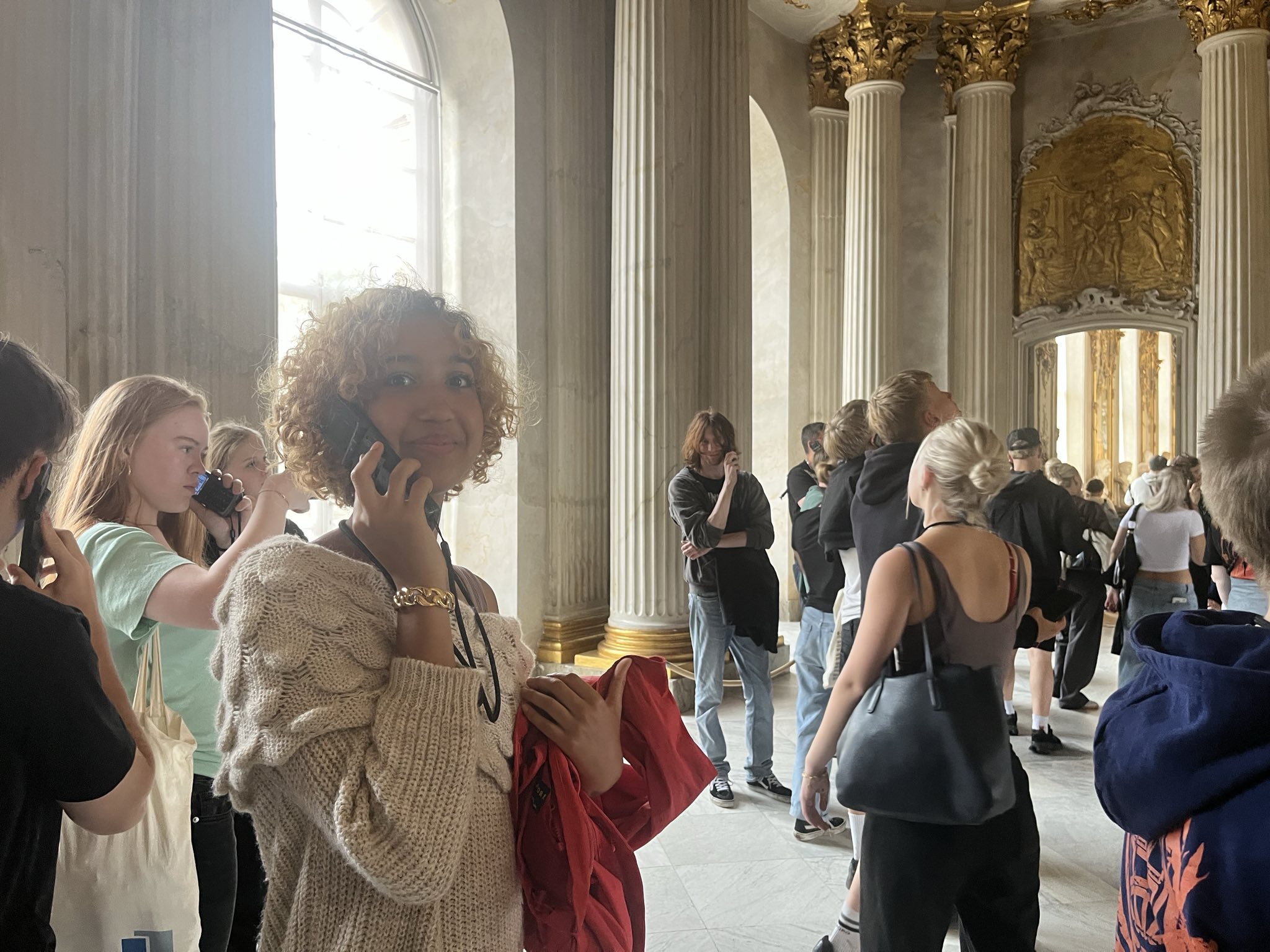

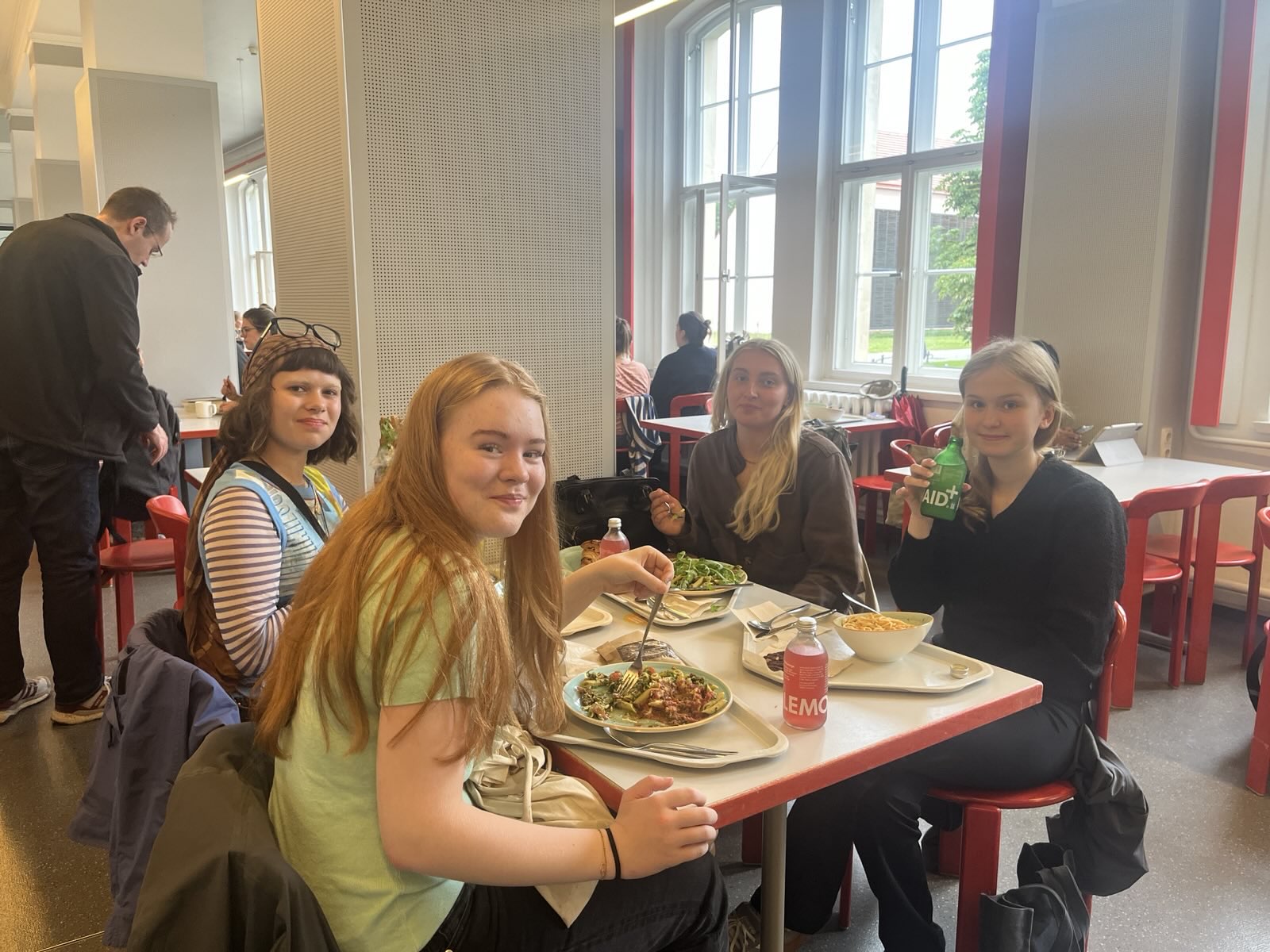

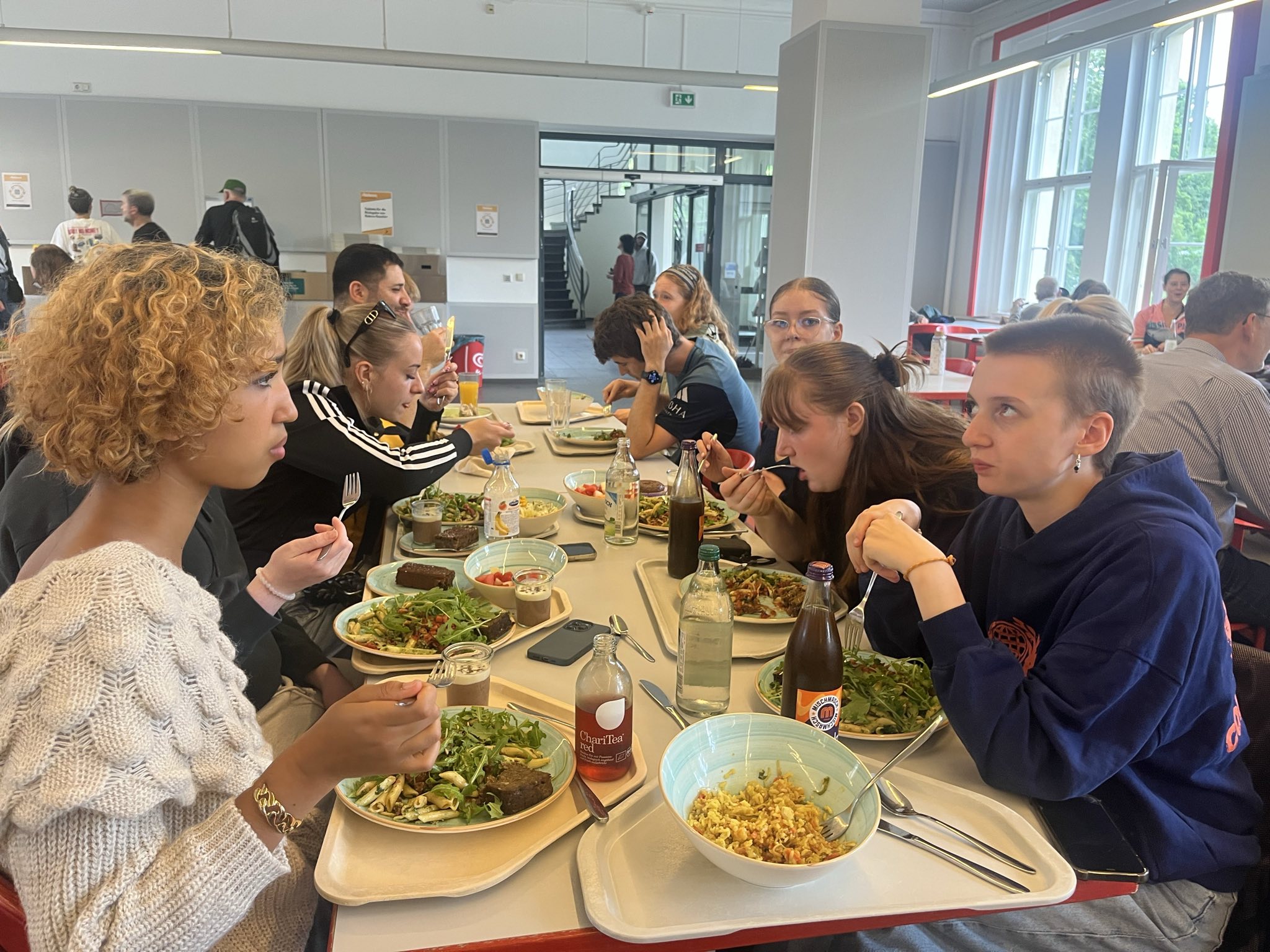
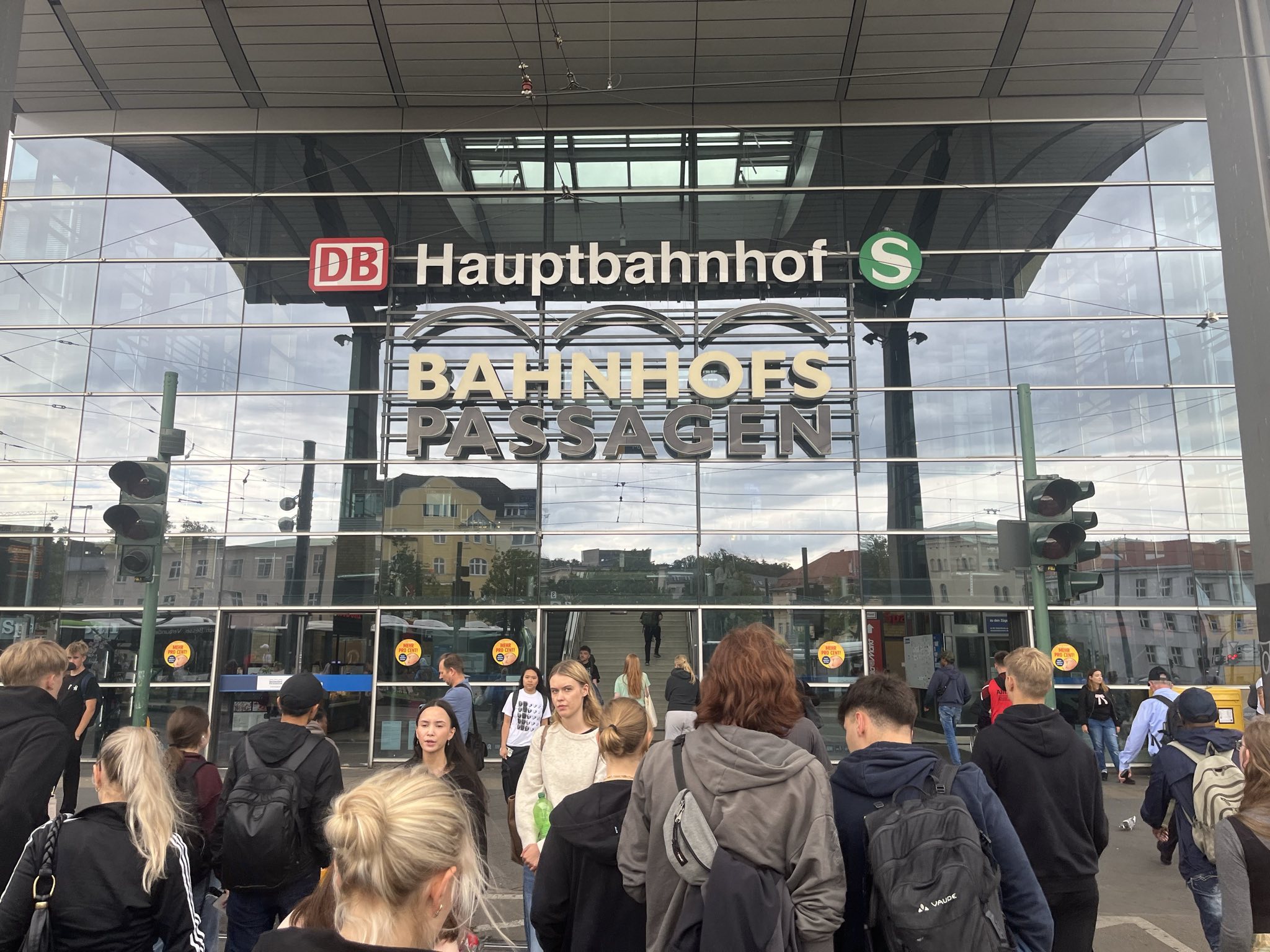
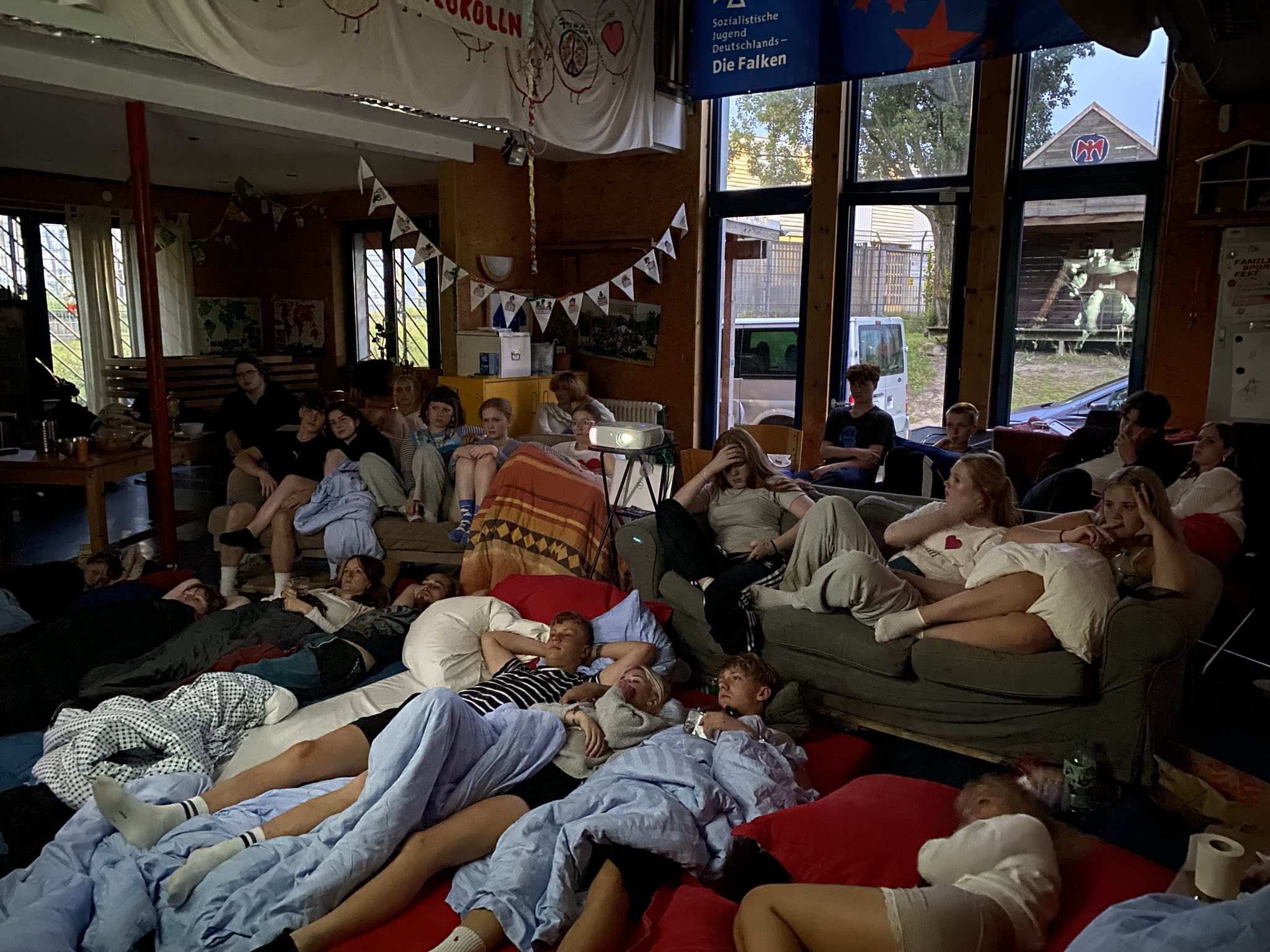
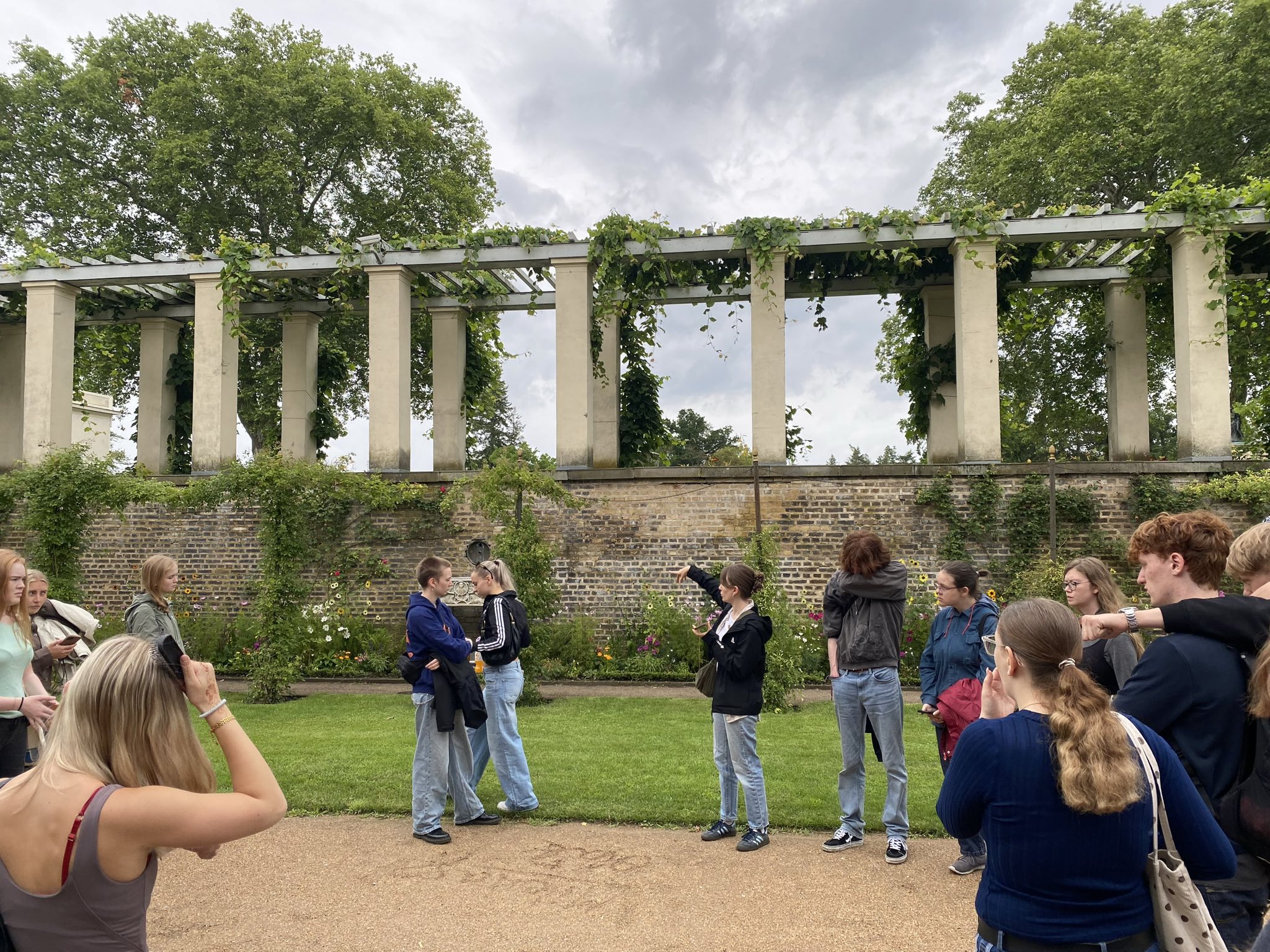
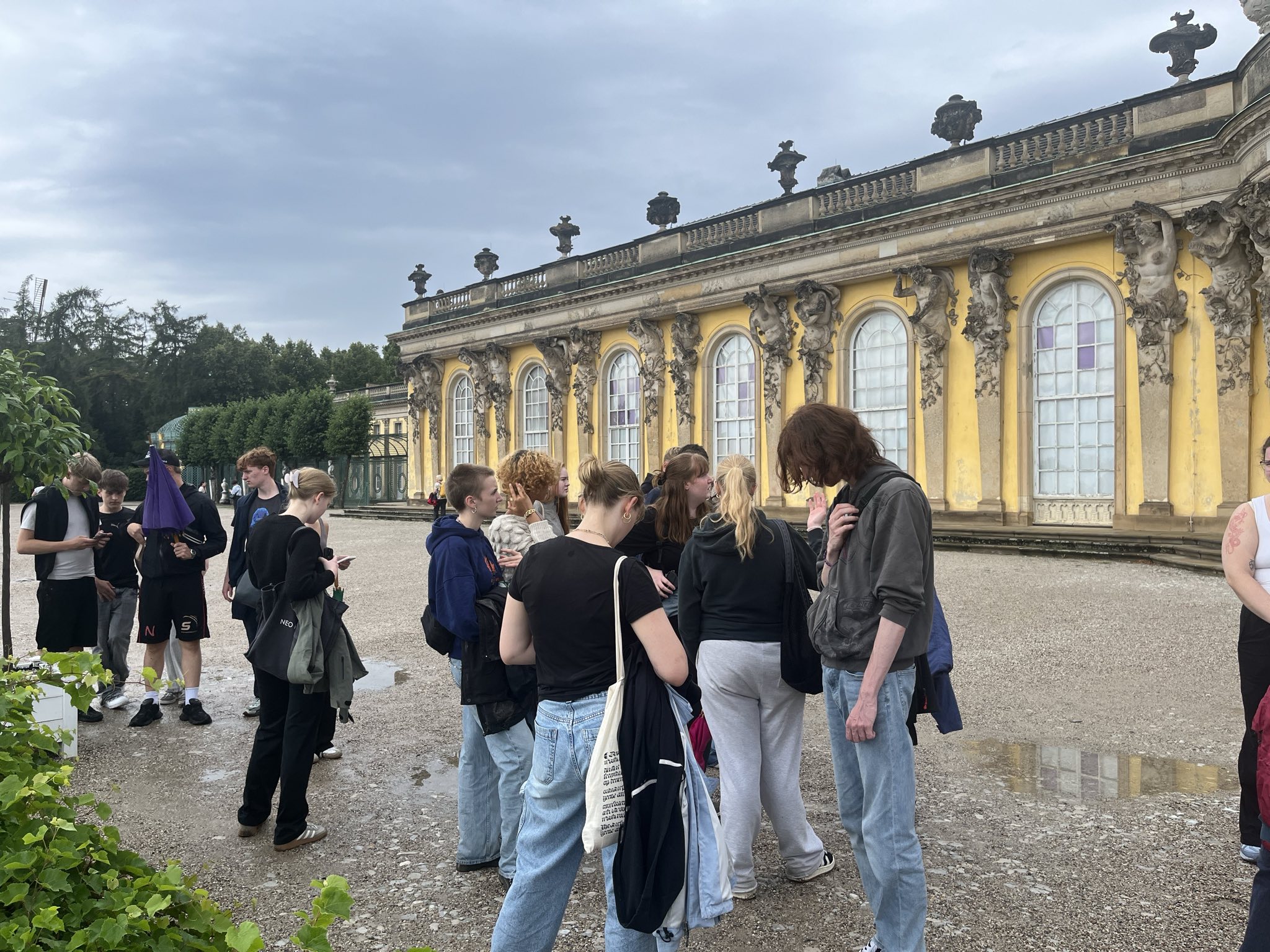
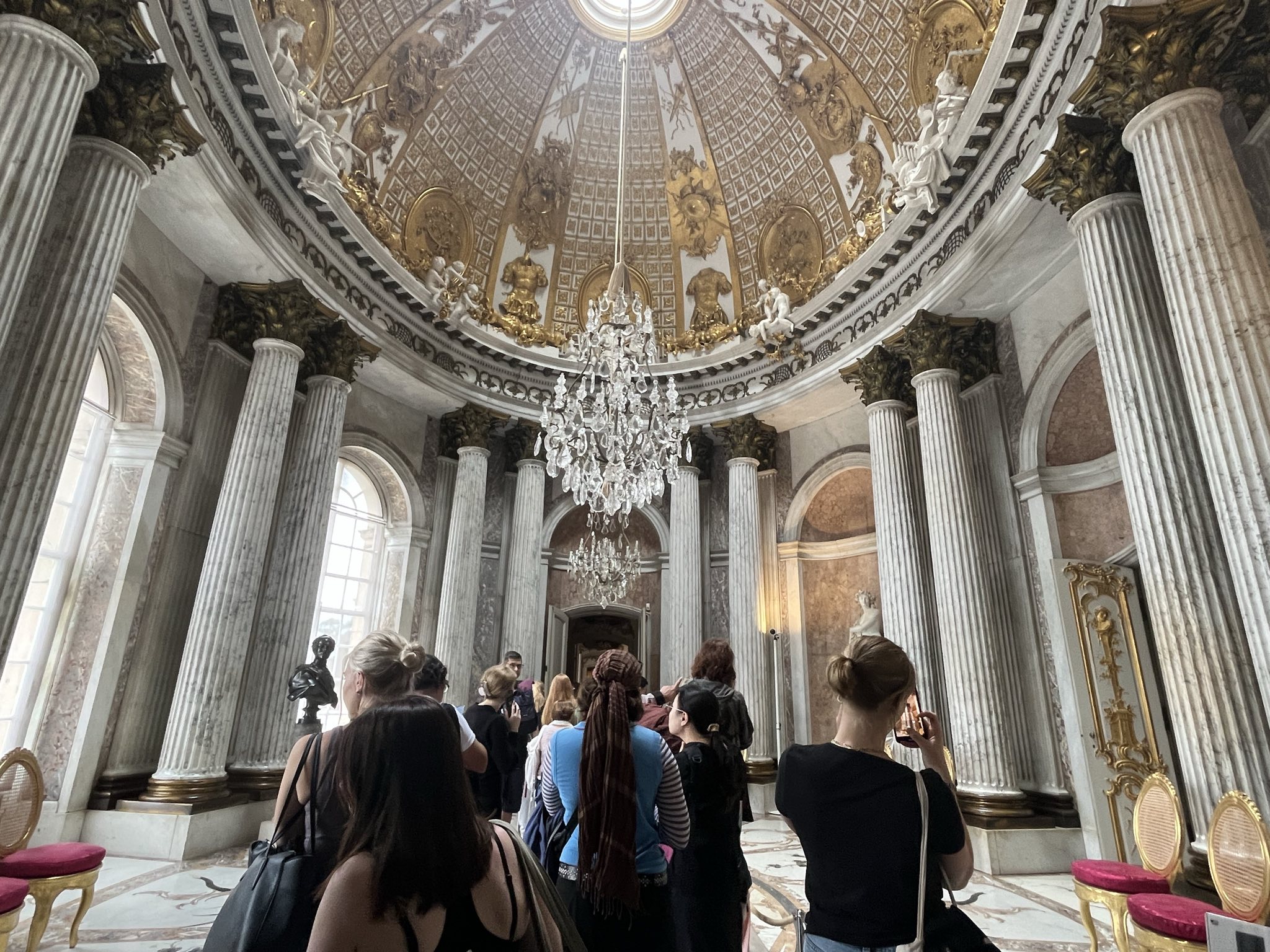
Du kannst der/die Erste sein